
We’re all familiar with the questions that arise when looking for a new boat. Is it the right size and does it need work? How does it sail and is it within budget? Next you might look at the specifications – LOA, waterline, beam and draught – and maybe drill down a little deeper on the engine, for example.
The specifications give you a good framework, but more interesting is the information that’s hidden. Or, at least, appears hidden to the everyday boat owner. Aside from a test sail, much of a boat’s performance can be ascertained by looking at some calculations.
Designers use a variety of tools when creating a new boat. Using calculations they can predict things such as stability, seaworthiness and speed potential under a range of conditions. Keel percentage, form stability, VPP and STIX–- these terms may sound off-putting, but get to know them and you’ll better understand your boat
Kasper Wedersøe is a partner and designer at CDE Danish Marine Design. He uses calculations frequently to predict how a boat will behave in the water.
“There are quite a few models that are useful, each in different ways,” he says. “But it’s important to remember that these dimensions are capable of predicting potential – not necessarily the actual performance.”
In other words, the numbers we get from dealers can be a bit optimistic. They’re based on ideal conditions, so not always representative, but can still be useful for comparing boats. Here, Kasper explain some of the more noteworthy terms.
Waterline length
This story is from the January 2021 edition of Practical Boat Owner.
Start your 7-day Magzter GOLD free trial to access thousands of curated premium stories, and 9,000+ magazines and newspapers.
Already a subscriber ? Sign In
This story is from the January 2021 edition of Practical Boat Owner.
Start your 7-day Magzter GOLD free trial to access thousands of curated premium stories, and 9,000+ magazines and newspapers.
Already a subscriber? Sign In

Orca sink yacht in Strait of Gibraltar
Spain's maritime rescue service, Salvamento Maritimo, has reported that a 15m (49ft) yacht sank in Moroccan waters in the Strait of Gibraltar following interaction with a pod of orca.

No kill cord or lifejackets were worn during fatal powerboat crash
A kill cord and lifejacket are useless unless worn-that's the warning from the Marine Accident Investigation Branch (MAIB), following its investigation into a powerboat crash that killed a 32-year-old woman and five-year-old girl on 2 October 2022.

Multihull sail work
Brush up on multihull sailing skills before heading off on charter with Gavin Le Sueur's guide to spinnaker handling, tacking and gybing

Five top causes of engine failure and how to prevent them
Jake Kavanagh talks to Sea Start marine engineer Nick Eales about how to avoid the five major causes of an engine breakdown at sea

Sail the Atlantic with strangers
Would you sail across the Atlantic with someone you've just met? Ali Wood meets the cruising crews who've done just that
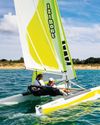
IZIBoat: simple sailing
Rupert Holmes sails an innovative catamaran design intended to widen participation in sailing among those with little time to get on the water in more conventional craft
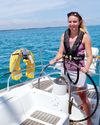
30 WAYS TO GET AFLOAT
From tall ships to small dinghies, you needn't own a boat to sail. Ali Wood looks at the options, and how skippers can also find crew
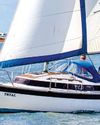
Boats for restoring under £20,000
Duncan Kent picks the best sub-35ft sail and power boats to look for when aiming to undertake a restoration on a budget
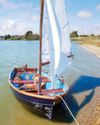
Seaworthy dinghies for less than £500
For low cost traditionally-styled GRP trailer-sailers, consider the Foreland and the Otter available at bargain basement prices
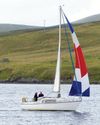
Playing with coloured sails
Maintaining an hourglass-shaped balloon and ratcheting up the log numbers